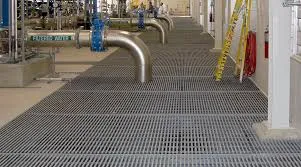corrosion resistant fiberglass
Corrosion-Resistant Fiberglass The Future of Durable Materials
In an age where infrastructure and industrial settings are constantly under threat from corrosive environments, the demand for advanced materials has never been greater. Corrosion-resistant fiberglass has emerged as a highly effective solution that offers durability, versatility, and cost-effectiveness. This innovative material is quickly becoming a staple in various industries, from construction to chemical processing.
Fiberglass, primarily composed of a polymer matrix reinforced with glass fibers, is renowned for its exceptional strength-to-weight ratio. By incorporating specialized resin formulations, manufacturers can enhance fiberglass’s resistance to a variety of corrosive agents, including acids, alkalis, and seawater. This capability makes corrosion-resistant fiberglass an ideal choice for applications in harsh environments where traditional metals would succumb to deterioration.
Corrosion-Resistant Fiberglass The Future of Durable Materials
In the chemical processing industry, for instance, corrosion-resistant fiberglass is used extensively for storage tanks, pipes, and fittings. Chemicals and solvents that would typically corrode metal structures are safely contained within fiberglass systems, preventing leaks and reducing the risk of hazardous spills. This safety aspect is crucial, as it protects both the environment and human health, aligning with growing global concerns regarding sustainability and safety standards.
corrosion resistant fiberglass

Moreover, the lightweight nature of fiberglass facilitates easier installation and transportation, translating to quicker project completion. Workers can handle fiberglass components with ease, reducing labor costs and minimizing the risk of workplace injuries associated with heavy materials. The flexibility of fiberglass also allows for the creation of custom solutions tailored to specific project requirements, further enhancing its appeal.
In addition to the chemical industry, corrosion-resistant fiberglass finds applications in marine environments, construction, and even automotive manufacturing. Its resistance to saltwater makes it an optimal choice for boats and other marine structures, while its aesthetic qualities allow architects and designers to incorporate fiberglass into modern buildings without compromising on style or functionality.
The environmental impact of corrosion-resistant fiberglass is another aspect worth highlighting. With an increasing emphasis on eco-friendly materials, fiberglass manufacturers are investing in sustainable processes and materials aimed at reducing the carbon footprint. Advances in recycling technologies are making it possible to reuse fiberglass, further minimizing waste and promoting sustainability.
In conclusion, corrosion-resistant fiberglass represents a significant advancement in material science, offering a multitude of benefits across various industries. Its durability, low maintenance needs, and flexibility in design position it as a leading choice for modern applications facing corrosive challenges. As industries continually strive for innovation, the adoption of corrosion-resistant fiberglass is set to play a crucial role in shaping the future of durable materials.
Latest news
-
Oblate Tanks: Space-Saving, Durable Liquid Storage SolutionsNewsAug.27,2025
-
High-Performance Piping System Solutions for Industry & Commercial UseNewsAug.26,2025
-
Precision Fittings: Durable & Reliable Industrial & Plumbing SolutionsNewsAug.25,2025
-
Practical Steps: Unlock Success with Our Proven GuidesNewsAug.24,2025
-
Transport Tanks: Safe, Durable & Efficient Liquid HaulingNewsAug.23,2025
-
High-Quality Piping Systems for Efficient Flow & DurabilityNewsAug.22,2025











